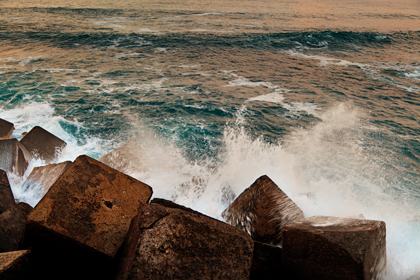
Climate change adaption can have unfortunate side-effects
Projects that prepare us against climate change abound - projects that can end up costing the environment and the local population dear.
While politicians and decision-makers are setting projects in motion to protect us against changes to the climate, the environment and local populations they are trying to help risk paying a high price.
This is the conclusion reached in the article "The political economy of climate adaption" which has just been published in the magazine "Nature Climate Change".
Unfortunate side-effects
An example of one of these more or less flawed projects is to be found in Mnazi Bay-Ruvuma Estuary Marine Park in Tanzania. Here, measures taken to protect a coral reef affected villagers' traditional fishing practices in the area to such an extent that they have now become more dependent on energy-intensive farming with higher greenhouse gas emission.
Furthermore, some fishermen have been forced to relocate to other areas along the coast with higher fuel prices and smaller catches. Many have had to abandon their modest vessels in favour of bigger, motorised boats that further increase CO2 emissions.
In the Maldives the government has in the last decade sought to climate-proof the infrastructure against rising sea levels. The building of ditches and expansion of harbours in order to secure transport routes has meant that nature's own environmental measures have been weakened, the coral reef is even more vulnerable and disruption of the tide has affected the circulation of nutrients.
Considerations
It is therefore important that politicians and decision-makers remember to take political, economic and sociological aspects into consideration if climate adaption is not to have unintended consequences for the very people the adaptions are supposed to protect.
Professor Michael Evan Goodsite from the University of Southern Denmark, Professor Benjamin Sovacool from Aarhus University and Professor Björn-Ola Linnér from Linköping University are behind the article.
For more information contact
Professor and Head of Department Michael Evan Goodsite at migo@iti.sdu.dk or journalist Martin Borup Mogensen at mbom@tek.sdu.dk